Bio-degradable cards
Every card imaginable!
|
Bio-degradable cards Every card imaginable! Most Popular Assistance Dog Breeds in the UK: 2026 Guide to Incredible Canine CompanionsIt's normal to feel a bit overwhelmed when learning about assistance dogs, whether for yourself, a family member, or out of curiosity. This guide is here to make it simple, showing the most popular and successful assistance dog breeds in the UK, the tasks they perform, and the qualities that make them such reliable partners for people with disabilities. Our goal is to give you clear, helpful information so you can feel confident and informed about these incredible animals and the vital work they do.
Assistance Dogs in the UK: Key Trends and Statistics for 2026As we move into 2026, assistance dogs continue to play a vital role in supporting people with disabilities across the UK. According to Assistance Dogs UK (ADUK) and its member charities, there are over 7,000 accredited assistance dogs actively working nationwide, providing independence and companionship to those with visual impairments, hearing loss, mobility issues, medical conditions, and more. Recent data from major organisations highlights consistent patterns and evolving trends: Guide Dogs UK (the largest provider, breeding around 1,500 puppies annually) primarily uses Labrador Retrievers, Golden Retrievers, German Shepherds, and their crosses. Lab/Golden crosses now make up a significant portion of working guide dogs due to their reliable temperament and versatility. They also incorporate low-shedding lines (including Standard Poodles and curly-coated retrievers) to better support handlers with allergies. Hearing Dogs for Deaf People favours smaller, alert breeds such as Cocker Spaniels, Cockapoos, Miniature Poodles, and Labradors – often referred to as their "fantastic four" for sound-alert work. Labrador Retrievers remain the most commonly used breed overall for service work in the UK, excelling in guide, mobility, and medical alert roles. A notable 2026 trend is the increasing demand for hypoallergenic or low-shedding dogs. With more handlers experiencing allergies or asthma, organisations are expanding the use of Standard Poodles and Poodle crosses (such as Labradoodles, Goldendoodles, and Cockapoos) in hearing, medical alert, and autism support roles. These options allow more people to benefit from an assistance dog partnership. These incredible animals not only perform life-changing tasks but also offer emotional support, reducing isolation and boosting confidence. For the most up-to-date matching, always consult ADUK-accredited charities, as individual dog temperament and handler needs are the ultimate priorities. Table of Contents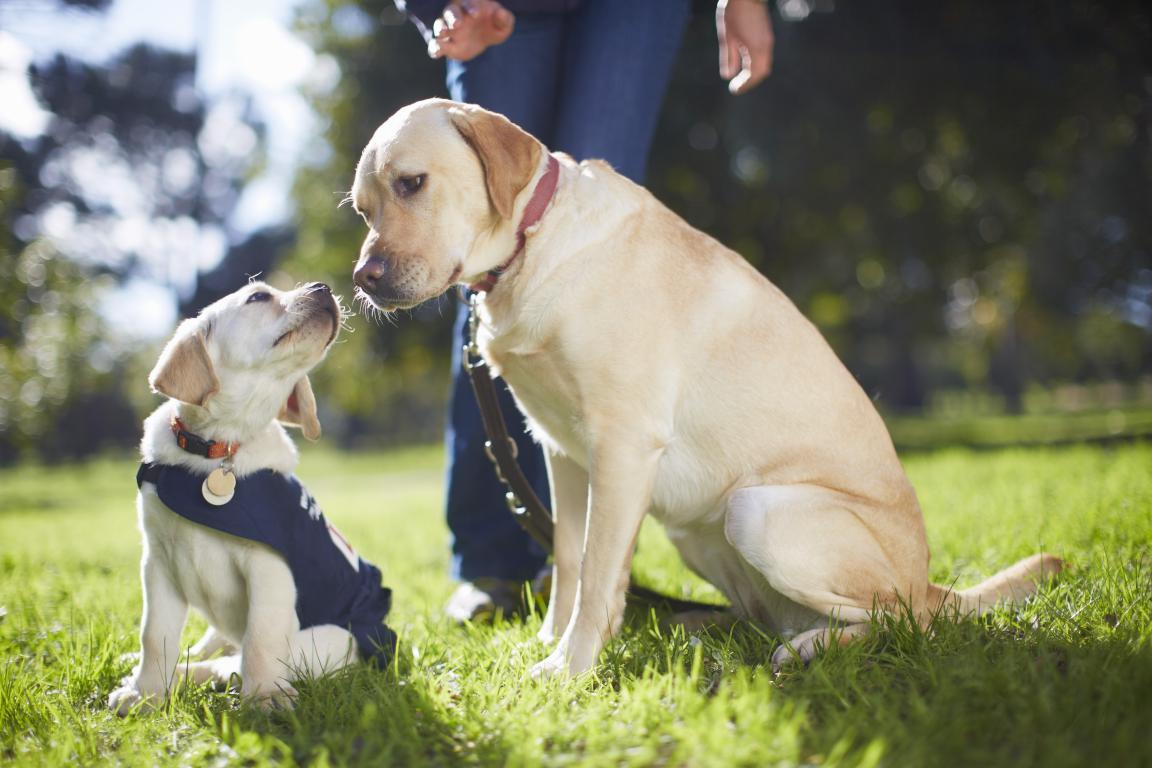
What Makes a Great Assistance Dog?When we think about assistance dogs, it’s easy to imagine a furry hero, and they truly are! But what exactly goes into making a dog suitable for such an important role? It’s not just about intelligence, though that's certainly a big part of it. A fantastic assistance dog possesses a unique blend of traits that allows them to perform complex tasks, remain calm in all sorts of environments, and be a constant, reassuring presence for their human partner. Firstly, a stable temperament is absolutely crucial. Assistance dogs need to be unflappable. Imagine navigating a busy high street, a noisy train station, or a quiet doctor’s waiting room – these dogs must remain focused on their job, not easily distracted or startled by unexpected sounds, smells, or people. This means they should be confident but not aggressive, friendly but not overly boisterous, and calm rather than excitable. They need to be able to assess situations and react appropriately, always with their handler’s safety and needs in mind. Trainability is another key factor. Assistance dog tasks are often very intricate, requiring a dog to learn a wide range of commands and problem-solving skills. Breeds known for their eagerness to please and their ability to pick up new information quickly are often preferred. This isn't just about learning basic obedience; it's about understanding complex sequences of actions, responding to subtle cues, and sometimes even making independent decisions based on their training. A dog that enjoys learning and working alongside its human will excel in this field. Then there's the physical aspect. An assistance dog needs to have good health and stamina. Their working life can be demanding, involving lots of walking, standing, and sometimes even pulling a wheelchair or retrieving heavy items. Therefore, breeds generally known for their robust health and suitable size are often chosen. Their physical build needs to be appropriate for the tasks they'll be performing. For instance, a dog helping someone with mobility issues might need to be sturdy enough to provide balance support. Finally, a low prey drive and a good social nature are very important. Assistance dogs will encounter all kinds of other animals, from squirrels in the park to other dogs in public. They need to be able to ignore these distractions and remain focused on their handler. Similarly, they'll interact with many different people, so a naturally friendly and tolerant disposition is vital. They shouldn't be prone to barking excessively or showing fear or aggression towards strangers. All these traits come together to create an extraordinary animal that isn’t just a pet, but a lifeline and a true partner. It’s a huge commitment, both for the organisations that train them and the individuals who welcome them into their lives, but the incredible bond and independence they provide are truly invaluable. 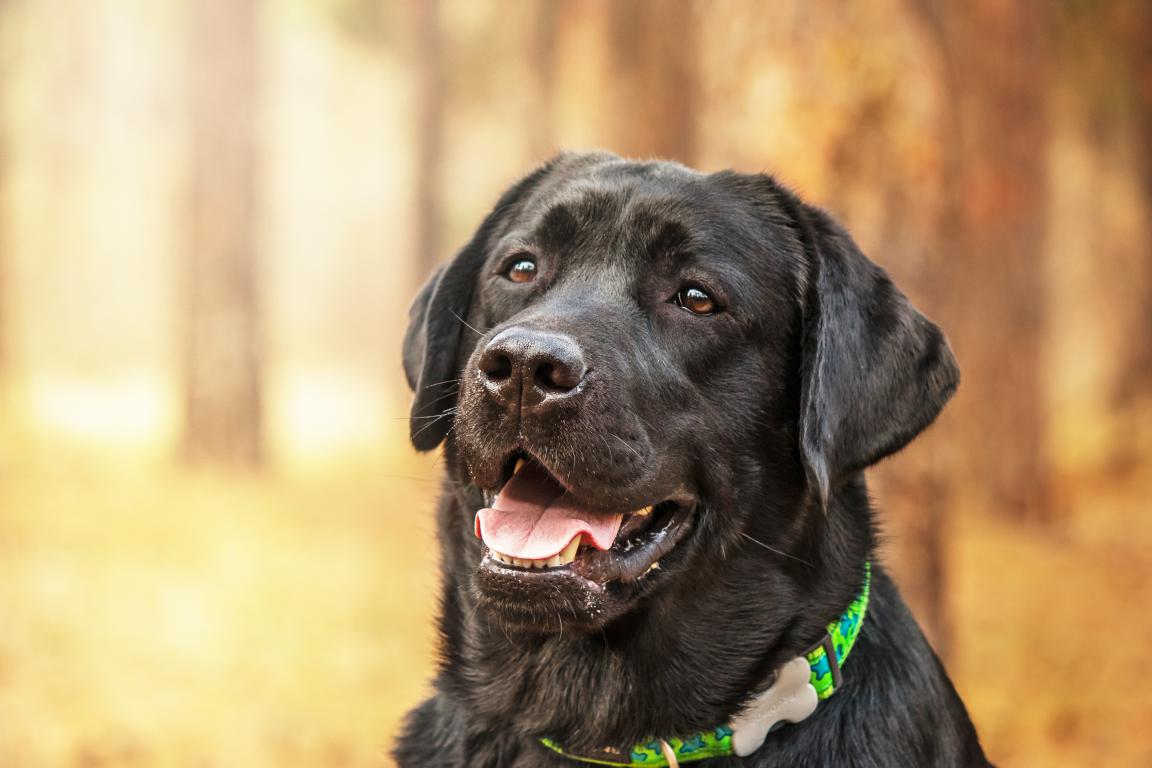
Labrador RetrieverThe Labrador Retriever, often affectionately called a "Lab," is arguably the most well-known and widely used assistance dog breed, not just here in the UK but across the globe. It’s no exaggeration to say that if you’ve seen an assistance dog working, there’s a very good chance it was a Labrador. And there are some incredibly compelling reasons why they hold this top spot. Labs are renowned for their wonderful temperament. They are naturally friendly, gentle, and incredibly eager to please their human companions. This innate desire to work and cooperate makes them exceptionally trainable. They love having a job to do and thrive on the praise and positive reinforcement they receive during training. Their intelligence is high, allowing them to grasp complex commands and tasks with relative ease. They're also known for their patience and calm nature, which is absolutely vital when working in various public environments, from bustling shops to quiet medical appointments. They tend to be very resilient and not easily flustered by unexpected noises or events. Physically, Labradors are a fantastic choice. They are sturdy, medium-to-large dogs, typically weighing between 25-36 kg (55-80 lbs) and standing about 55-62 cm (22-24.5 inches) at the shoulder. This size means they are robust enough to perform tasks like opening doors, retrieving dropped items, carrying bags, or even providing a stable brace for someone needing balance support. Their strong, athletic build also means they have the stamina for long working days. Their short, dense coat is relatively low maintenance, shedding but not prone to matting, which is a practical consideration for a working dog. When it comes to the specific roles they perform, Labradors are incredibly versatile. They excel as:
Their strong bond with their handler is another reason for their success. Labs are loyal and affectionate, forming deep connections that go beyond just a working relationship. This bond fosters trust and makes the partnership incredibly effective. They are not just tools; they are companions who offer emotional support and unwavering devotion, which is just as important as the physical tasks they perform. The Labrador Retriever truly embodies what it means to be a faithful and dedicated assistance dog. 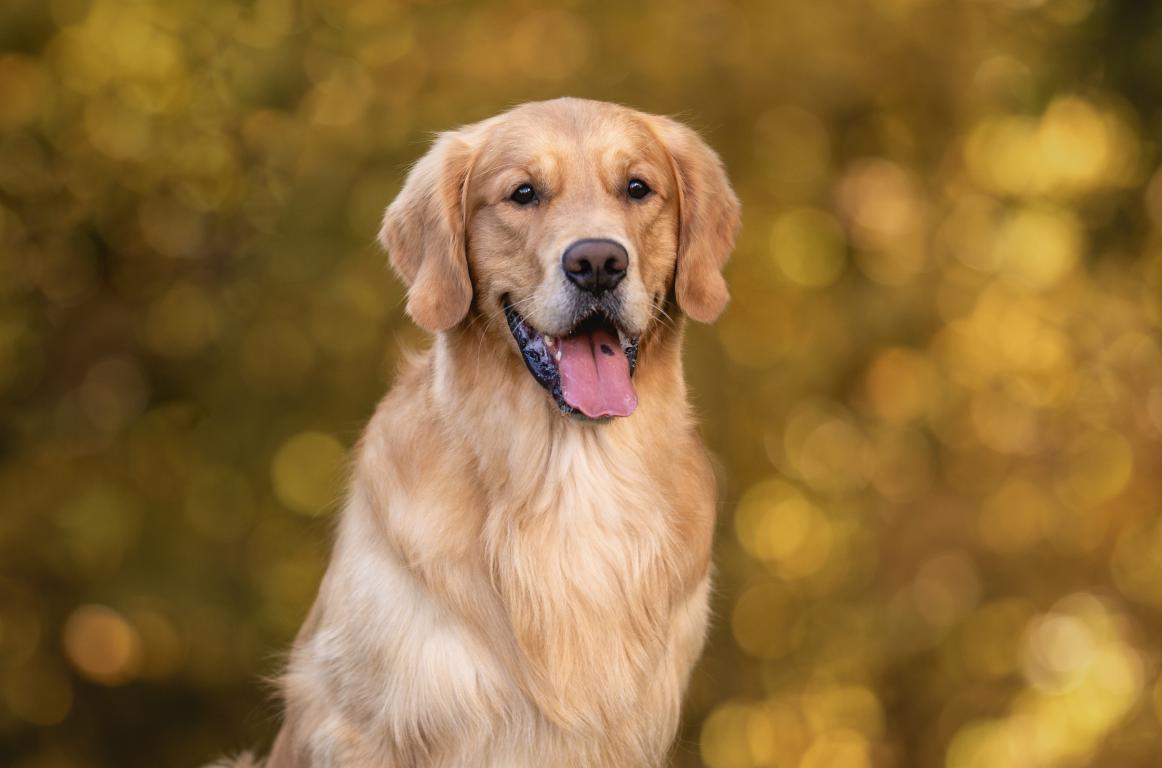
Golden RetrieverMuch like their Labrador cousins, the Golden Retriever is another immensely popular and highly successful breed in the world of assistance dogs here in the UK. With their friendly demeanour, beautiful flowing coats, and ever-present gentle smile, Goldens possess a collection of traits that make them perfectly suited for a life of service. The temperament of a Golden Retriever is, without a doubt, one of their most outstanding qualities. They are renowned for being exceptionally gentle, patient, and tolerant, making them ideal companions for individuals of all ages, including children. Their naturally affectionate and eager-to-please nature means they are highly motivated to learn and respond well to positive reinforcement during training. They possess a high level of intelligence and a strong desire to work alongside their human partners, which is crucial for mastering the complex tasks required of an assistance dog. They are generally calm and composed, rarely exhibiting aggression or excessive nervousness, which allows them to handle various public environments with grace and focus. Physically, Golden Retrievers are sturdy, athletic dogs, typically weighing between 25-34 kg (55-75 lbs) and standing around 55-61 cm (21.5-24 inches) at the shoulder. This makes them a good size for many assistance tasks. Their robust build provides stability, while their agility allows them to navigate different spaces effectively. Their beautiful golden coat does require regular grooming to keep it free from tangles and mats, which is a consideration for handlers, but it’s a small price to pay for their incredible qualities. Golden Retrievers excel in many of the same assistance roles as Labradors due to their similar inherent characteristics:
The deep emotional connection a Golden Retriever forms with its handler is incredibly powerful. They offer not just practical assistance but also immense emotional support, reducing feelings of isolation and increasing confidence. Their gentle nature makes them particularly good at providing comfort and stability. For many, a Golden Retriever assistance dog is more than just a helper; they are a beloved family member and an indispensable partner in navigating the world. Their unwavering loyalty and cheerful disposition bring immeasurable joy and independence to those they serve. 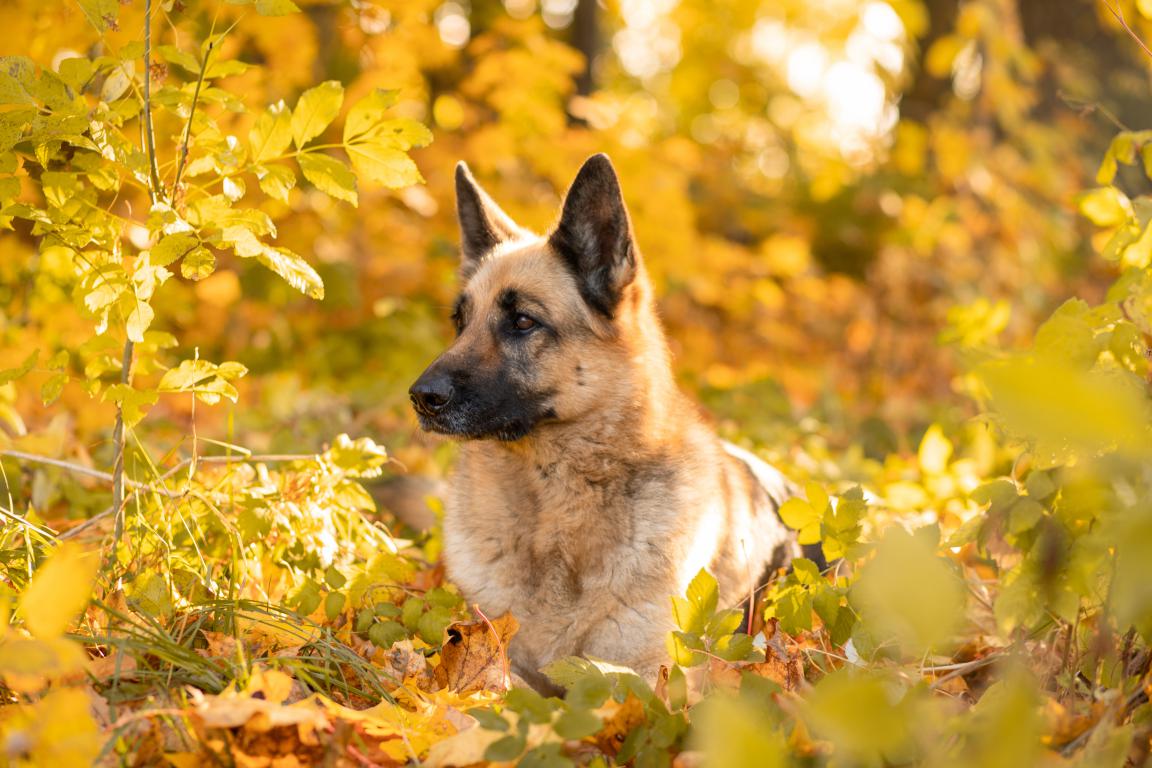
German ShepherdThe German Shepherd Dog, often simply called a German Shepherd, is a breed synonymous with intelligence, loyalty, and a strong work ethic. While perhaps more commonly associated with police and military work, they are also highly valued and successful assistance dogs here in the UK, particularly for roles requiring strength, protective instincts, and intense focus. What truly sets the German Shepherd apart for assistance work is their exceptional intelligence and trainability. They are incredibly quick learners, capable of understanding complex commands and performing tasks that require problem-solving and initiative. This breed has a deep desire to have a purpose and to work closely with their handler, forming a very strong, almost single-minded bond. Their inherent protectiveness, when properly channeled through training, means they are always aware of their handler’s safety and surroundings, without being aggressive or overly vigilant in inappropriate situations. A well-trained German Shepherd is calm and confident, able to handle high-stress environments with composure, focusing entirely on their human partner. Physically, German Shepherds are robust, muscular dogs, typically weighing between 22-40 kg (49-88 lbs) and standing about 55-65 cm (22-26 inches) at the shoulder. Their powerful build makes them especially suited for tasks requiring significant strength or bracing. Their double coat provides protection in various weather conditions, though it does require regular grooming, especially during shedding seasons. Their imposing yet noble appearance can also deter unwanted attention, adding an extra layer of security for their handlers. German Shepherds excel in several specific assistance roles:
The bond between a German Shepherd and their handler is incredibly deep and loyal. They are tireless workers who thrive on interaction and a clear purpose. While their training might require a firm but fair hand, the result is an incredibly dedicated and capable partner who offers not just practical assistance but also a profound sense of security, companionship, and unwavering support. For those who require a powerful and highly intelligent assistance dog, the German Shepherd is an outstanding choice. 
PoodleWhen you think of an assistance dog, a Poodle might not be the first breed that springs to mind, but these elegant dogs are actually incredibly intelligent, versatile, and highly effective in many assistance roles here in the UK. Often underestimated due to their sophisticated appearance, Poodles (especially Standard Poodles) are gaining significant recognition for their fantastic suitability as service animals. The Poodle’s most defining characteristic, particularly for assistance work, is their exceptional intelligence. They are considered one of the most intelligent dog breeds, meaning they learn incredibly quickly and can master a vast array of complex tasks. Coupled with their intelligence is an eagerness to please and a lively, engaged personality, which makes them highly trainable. They thrive on mental stimulation and enjoy having a job to do. Poodles are generally calm, good-natured, and remarkably adaptable, capable of adjusting to various environments and routines with ease. They are also known for their surprisingly good stamina and athletic abilities. Physically, Poodles come in three main sizes: Toy, Miniature, and Standard. For assistance work, the Standard Poodle is usually preferred due to its size and robust build. Standard Poodles typically weigh between 20-32 kg (45-70 lbs) and stand about 45-60 cm (18-24 inches) at the shoulder, making them sturdy enough for many mobility tasks. Miniature Poodles can also be used for specific roles where a smaller dog is advantageous. A significant benefit of the Poodle is their low-shedding, hypoallergenic coat. While it requires regular grooming to prevent matting, it makes them an excellent choice for handlers with allergies or asthma, which is a crucial consideration for many. Poodles excel in a diverse range of assistance roles:
The Poodle’s elegant appearance belies a highly capable and dedicated working dog. They form incredibly strong bonds with their handlers, offering not just practical help but also deep companionship and emotional support. For those seeking an intelligent, versatile, and particularly allergy-friendly assistance dog, the Poodle is an exceptional and increasingly popular choice, proving that beauty and brains can indeed go hand in hand. 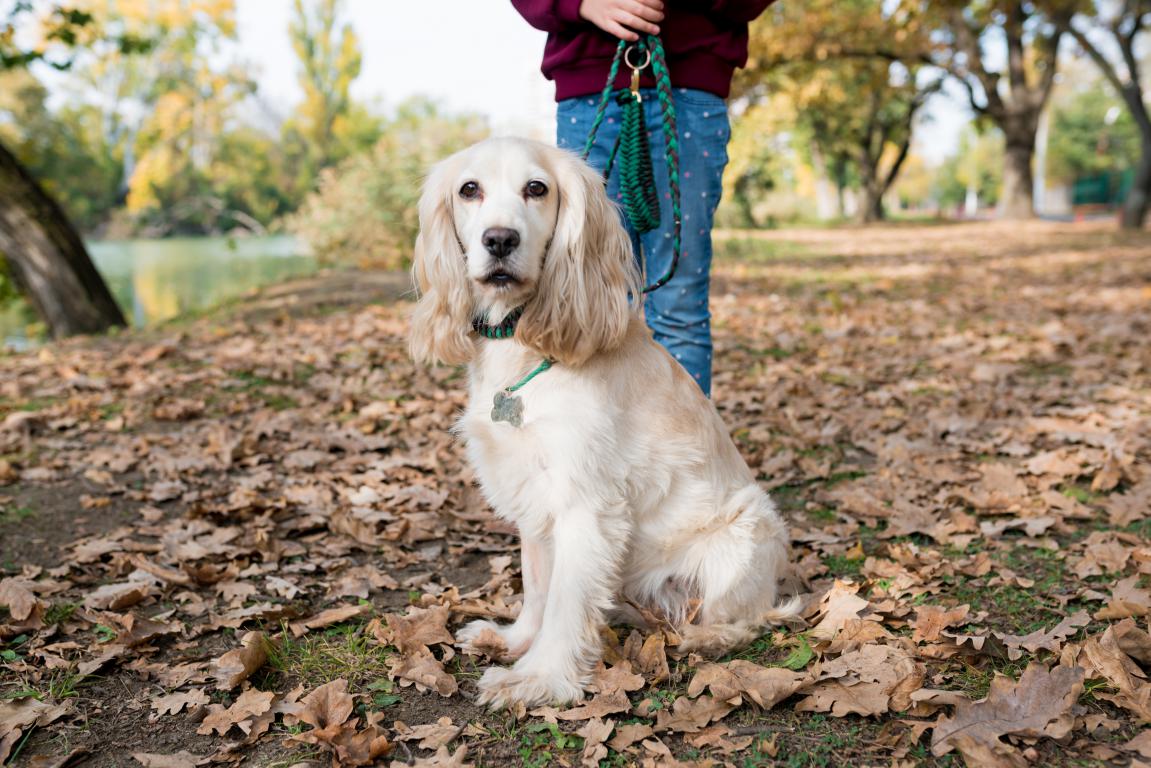
Cocker SpanielThe Cocker Spaniel, with their endearing expressive eyes and perpetually wagging tail, is a delightful breed known for its cheerful disposition and eagerness to please. While smaller than some of the more common assistance dog breeds, their intelligence, compact size, and affectionate nature make them excellent candidates for specific assistance roles here in the UK. Cocker Spaniels possess a wonderful temperament that makes them highly suitable for working with people. They are naturally friendly, gentle, and incredibly loyal, forming deep bonds with their handlers. Their intelligence means they are very trainable, picking up commands and tasks with enthusiasm. They have a strong desire to please and respond very well to positive reinforcement. Importantly for an assistance dog, they are generally adaptable and can remain focused on their tasks even in moderately busy environments. Their affectionate nature means they provide immense emotional comfort and companionship, which is a significant benefit for many handlers. Physically, Cocker Spaniels are compact, sturdy dogs, typically weighing between 10-15 kg (22-33 lbs) and standing about 38-41 cm (15-16 inches) at the shoulder. This smaller size is actually an advantage for certain roles, allowing them to navigate tight spaces, travel more easily on public transport, and comfortably fit into smaller living arrangements. Their soft, medium-length coat does require regular grooming to prevent tangles and mats, especially around their ears and legs. Despite their smaller stature, they are quite robust and have good stamina. Cocker Spaniels excel in roles where their size and acute senses are particularly beneficial:
The joy and light that a Cocker Spaniel brings to its handler's life cannot be overstated. They are not just functional assistance dogs but also warm, loving companions who enhance independence and quality of life in countless ways. Their cheerful disposition and unwavering loyalty make them truly special partners, proving that even a smaller dog can make an enormous difference. 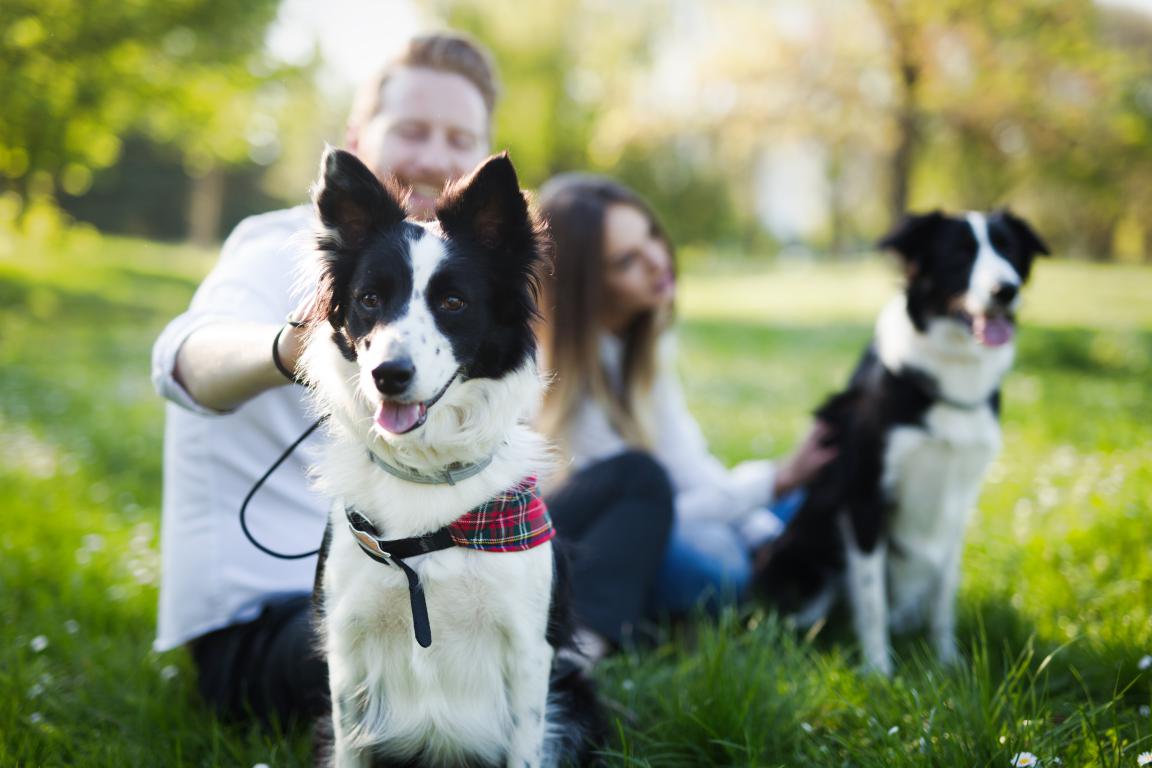
Border CollieThe Border Collie is widely regarded as one of the most intelligent dog breeds in the world, renowned for their incredible problem-solving abilities, intense focus, and unparalleled work ethic. While primarily famous for their sheep-herding prowess, these exceptional dogs are increasingly being utilised as assistance dogs here in the UK, particularly in roles that demand high levels of cognitive ability and dedication. The intelligence of a Border Collie is truly remarkable. They are incredibly quick to learn, can understand a vast number of commands, and excel at complex tasks that require multiple steps and independent thought. This makes them highly trainable, always eager for a challenge and a job to do. They thrive on mental stimulation and are at their best when given a clear purpose. Their temperament, when properly channelled, is one of intense focus and loyalty. They form incredibly strong bonds with their handlers and are deeply committed to their work. However, it's important to note that their high energy and need for mental engagement mean they require a very dedicated handler who can provide consistent training and activity. Without proper outlets, their intelligence can lead to boredom and potentially destructive behaviours. Physically, Border Collies are agile, medium-sized dogs, typically weighing between 14-20 kg (30-45 lbs) and standing about 48-56 cm (19-22 inches) at the shoulder. Their athletic build and stamina make them capable of long working days and various physical tasks. They have a double coat that can be rough or smooth, requiring regular grooming to maintain its condition. Their keen eyesight and hearing, combined with their natural alertness, are also significant assets in their working roles. Border Collies are particularly well-suited for assistance roles that demand high-level cognitive function and intricate task performance:
Working with a Border Collie assistance dog requires commitment, but the rewards are immense. Their unparalleled intelligence and devotion make them truly extraordinary partners, capable of enhancing independence and quality of life in profound ways. For handlers who can provide the necessary engagement and structure, a Border Collie is an intelligent, loyal, and tireless worker who will always put their human first. 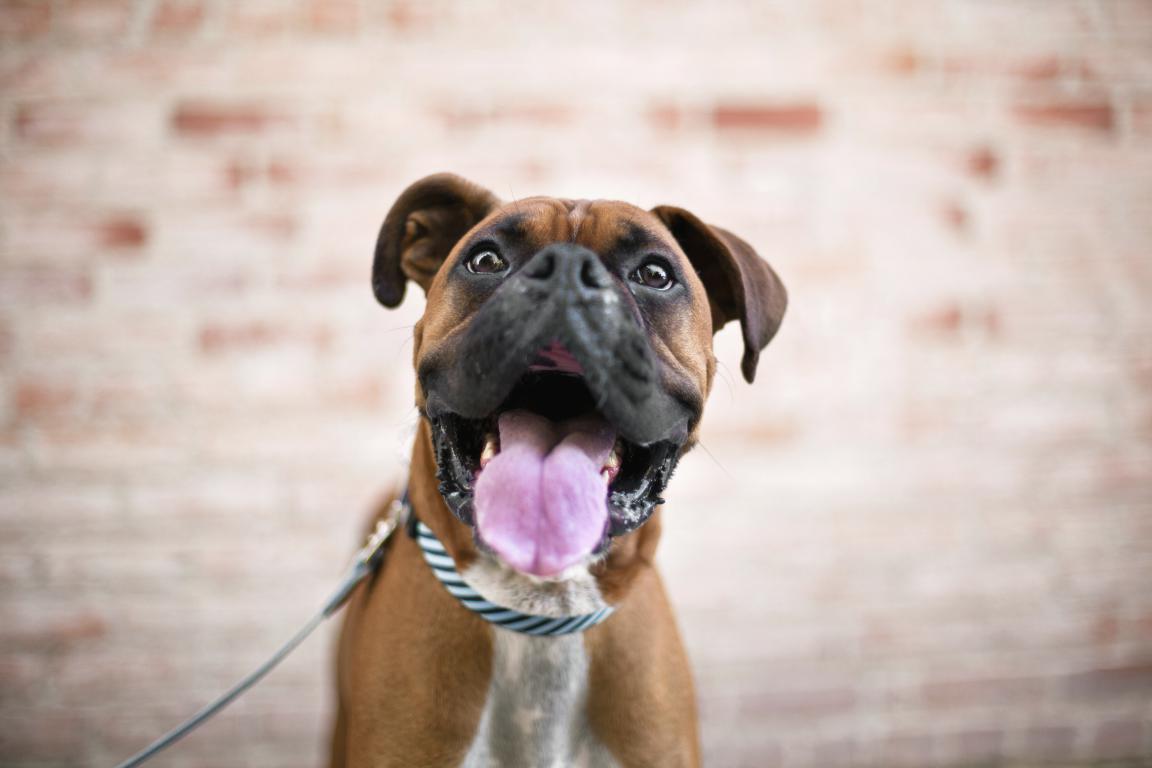
BoxerThe Boxer, with their distinctive strong build, expressive face, and boundless energy, might seem like an unconventional choice for an assistance dog at first glance. However, beneath their playful exterior lies a deeply loyal, intelligent, and courageous dog that, with the right training, can be an exceptional assistance partner here in the UK. Their unique qualities make them particularly suited for roles that benefit from their strength and devoted nature. Boxers possess a wonderful temperament when properly socialised and trained. They are incredibly loyal and protective of their families, forming strong, affectionate bonds. Their intelligence makes them trainable, and they respond well to consistent, positive reinforcement. What truly stands out is their unwavering devotion and courage; they will stand by their handler no matter what. While they are known for being playful and energetic, a well-trained Boxer is also capable of great focus and calmness, especially when on duty. They are generally tolerant and good-natured, especially with people they know, and can learn to be impeccably behaved in public settings. Physically, Boxers are powerful, muscular dogs, typically weighing between 25-32 kg (55-70 lbs) and standing about 53-64 cm (21-25 inches) at the shoulder. Their robust, athletic build makes them ideal for tasks requiring strength and stability. Their short, sleek coat is relatively low maintenance, which is a practical advantage. However, potential handlers should be aware that Boxers can be prone to certain health issues, such as some heart conditions or cancers, so choosing a dog from reputable breeding lines with health clearances is paramount. Their strong physical presence can also provide a sense of security for their handler. Boxers excel in specific assistance roles where their strength, loyalty, and protective instincts can be harnessed effectively:
The bond with a Boxer assistance dog is incredibly profound. They offer not just practical help but also a huge amount of emotional support, courage, and unconditional love. For individuals who can provide consistent training and channel their Boxer’s natural enthusiasm, they gain an incredibly devoted and capable partner who will stand by them through thick and thin, bringing confidence and independence to their lives. 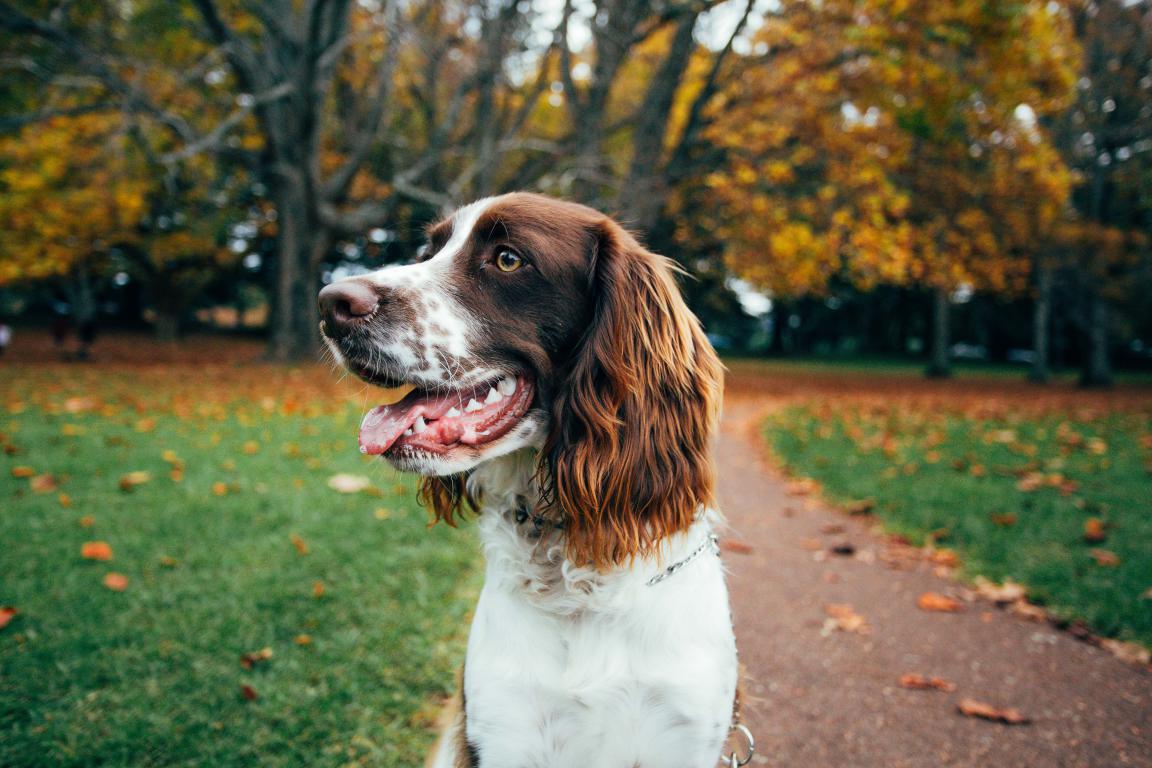
Springer SpanielThe Springer Spaniel, known for their boundless energy, enthusiastic retrieve, and cheerful disposition, is a highly capable and intelligent breed that is increasingly finding its place in the world of assistance dogs here in the UK. While traditionally celebrated as gundogs, their keen senses, eagerness to please, and manageable size make them excellent candidates for a variety of supportive roles. Springer Spaniels possess a wonderful temperament that is generally outgoing, friendly, and deeply loyal to their families. They are highly intelligent and very eager to please, which makes them incredibly trainable. They thrive on having a job to do and respond exceptionally well to positive reinforcement and consistent guidance. While they have a reputation for being energetic, a well-trained and focused Springer can exhibit impressive calm and concentration when working. Their acute senses – particularly their smell and hearing – are significant assets in their assistance roles. They are also highly adaptable and can adjust to various environments, although they do benefit from regular exercise to keep them mentally and physically stimulated. Physically, Springer Spaniels are medium-sized, athletic dogs, typically weighing between 18-25 kg (40-55 lbs) and standing about 48-51 cm (19-20 inches) at the shoulder. Their sturdy but agile build allows them to move gracefully through various environments, and their stamina ensures they can cope with busy working days. Their medium-length, feathered coat requires regular grooming to prevent matting, particularly around their ears, chest, and legs. Their size is a good balance – large enough to perform many tasks but not so large as to be cumbersome in public spaces or smaller homes. Springer Spaniels excel in several specific assistance roles, often leveraging their natural retrieving instincts and sharp senses:
The enthusiasm and unwavering loyalty of a Springer Spaniel make them truly heartwarming assistance partners. They offer a unique blend of practical help, sharp sensory abilities, and immense emotional support, enhancing the independence and overall quality of life for their handlers. For those seeking an energetic, intelligent, and deeply affectionate assistance dog, the Springer Spaniel is a fantastic and rewarding choice. 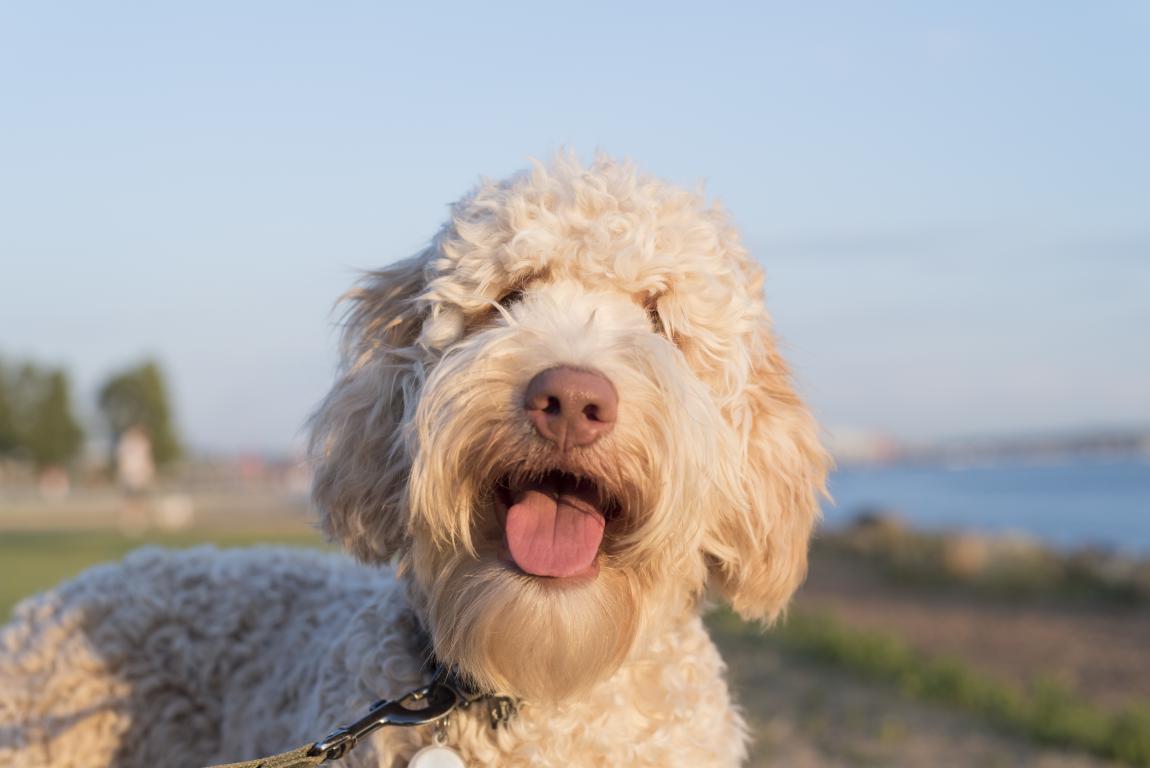
LabradoodleThe Labradoodle, a delightful crossbreed primarily between a Labrador Retriever and a Poodle, has rapidly grown in popularity, and for very good reason, especially in the realm of assistance dogs here in the UK. This intelligent and charming hybrid often brings together the best qualities of both parent breeds, resulting in a dog that is highly adaptable and incredibly well-suited for a life of service. One of the main appeals of the Labradoodle for assistance work lies in its temperament. They often inherit the Labrador’s friendly, outgoing, and eager-to-please nature, combined with the Poodle’s intelligence and trainability. This blend results in a dog that is highly sociable, gentle, and incredibly responsive to training. They are known for being very patient and calm, particularly when properly socialised and trained from a young age. Their intelligence means they pick up commands quickly and enjoy engaging in problem-solving tasks. They tend to form strong bonds with their handlers and are deeply loyal companions. Physically, Labradoodles can vary in size depending on the Poodle parent (Miniature, Medium, or Standard), but for assistance work, the Standard Labradoodle is most commonly used. They typically weigh between 20-35 kg (45-77 lbs) and stand about 53-63 cm (21-25 inches) at the shoulder, offering a robust but manageable size for various tasks. A significant advantage, inherited from the Poodle, is their coat. While not all Labradoodles are completely non-shedding, many produce very little dander and are considered to be more hypoallergenic than many other breeds. This makes them an excellent option for individuals who suffer from allergies or asthma, allowing them to benefit from an assistance dog where they might not otherwise be able to. Their coats do require regular grooming to prevent matting, much like a Poodle's. Labradoodles excel in a broad spectrum of assistance roles due to their balanced attributes:
The Labradoodle represents a fantastic convergence of desirable traits for an assistance dog. They offer not just invaluable practical support but also deep companionship, emotional comfort, and the crucial benefit of being a more allergy-friendly option. For many, a Labradoodle assistance dog is a perfect partner, enhancing independence and bringing immeasurable joy to their lives. 
GoldendoodleThe Goldendoodle, another popular hybrid created by crossing a Golden Retriever with a Poodle, shares many of the incredible qualities that make the Labradoodle such an outstanding assistance dog here in the UK. Combining the gentle nature of the Golden Retriever with the intelligence and hypoallergenic potential of the Poodle, the Goldendoodle is a highly sought-after breed for a wide array of service roles. The temperament of a Goldendoodle is often described as friendly, patient, and deeply affectionate. They inherit the Golden Retriever’s characteristic desire to please and their gentle disposition, blended with the Poodle’s sharp intellect and trainability. This results in a dog that is highly sociable, easy to train, and remarkably tolerant, making them well-suited for interacting with various people and environments. They are known for their calm demeanour when focused on a task and their unwavering loyalty to their handlers. They thrive on companionship and enjoy having a purpose, which is ideal for an assistance dog. Physically, like Labradoodles, Goldendoodles can vary in size depending on the Poodle parent used (Miniature, Medium, or Standard). For most assistance work, the Standard Goldendoodle is preferred, typically weighing between 23-41 kg (50-90 lbs) and standing about 53-61 cm (21-24 inches) at the shoulder. This size provides a sturdy frame for various tasks. A significant advantage, shared with the Labradoodle, is their coat. While not all Goldendoodles are completely non-shedding, many have low-shedding coats and produce less dander, making them a suitable choice for individuals with allergies or asthma who might otherwise be unable to have an assistance dog. Regular grooming is essential to keep their beautiful wavy or curly coats free from mats. Goldendoodles are highly versatile and excel in a similar range of assistance roles to Labradors and Labradoodles:
The Goldendoodle embodies the ideal blend of helpfulness, companionship, and adaptability required of an assistance dog. They offer not just crucial practical support but also immense emotional comfort and the added benefit of being a more allergy-friendly option, opening up the world of assistance dogs to more people. For many, a Goldendoodle assistance dog becomes an indispensable partner, enriching their lives with independence, joy, and unwavering love. 
|